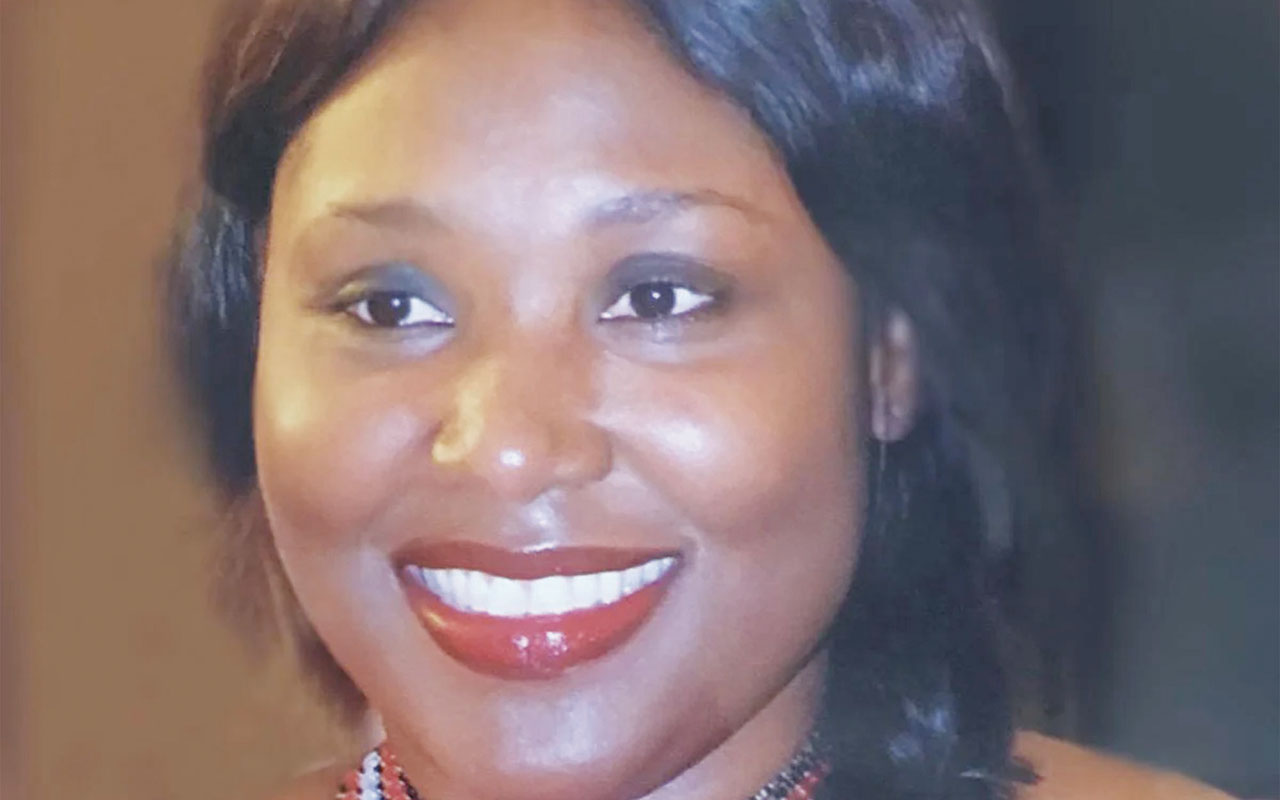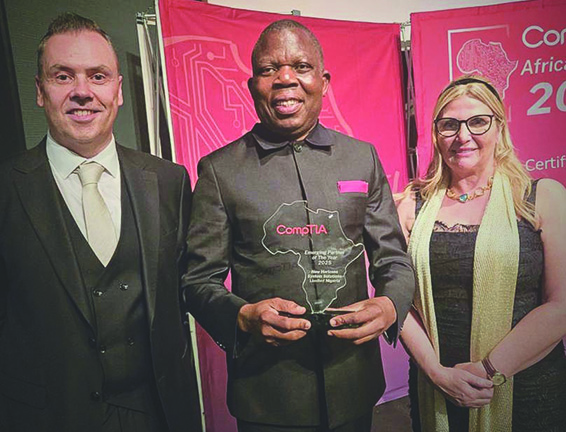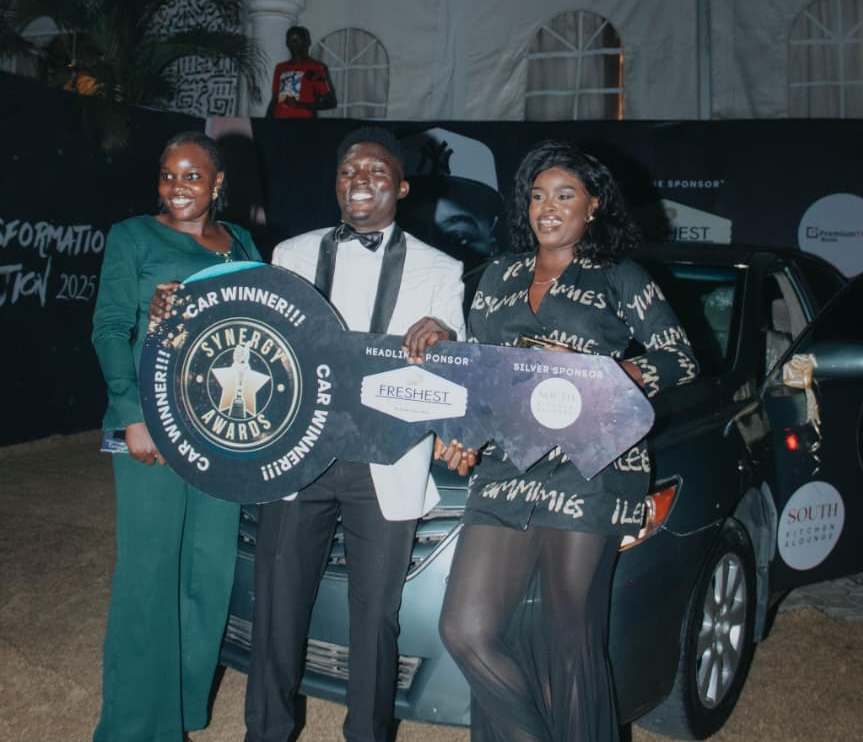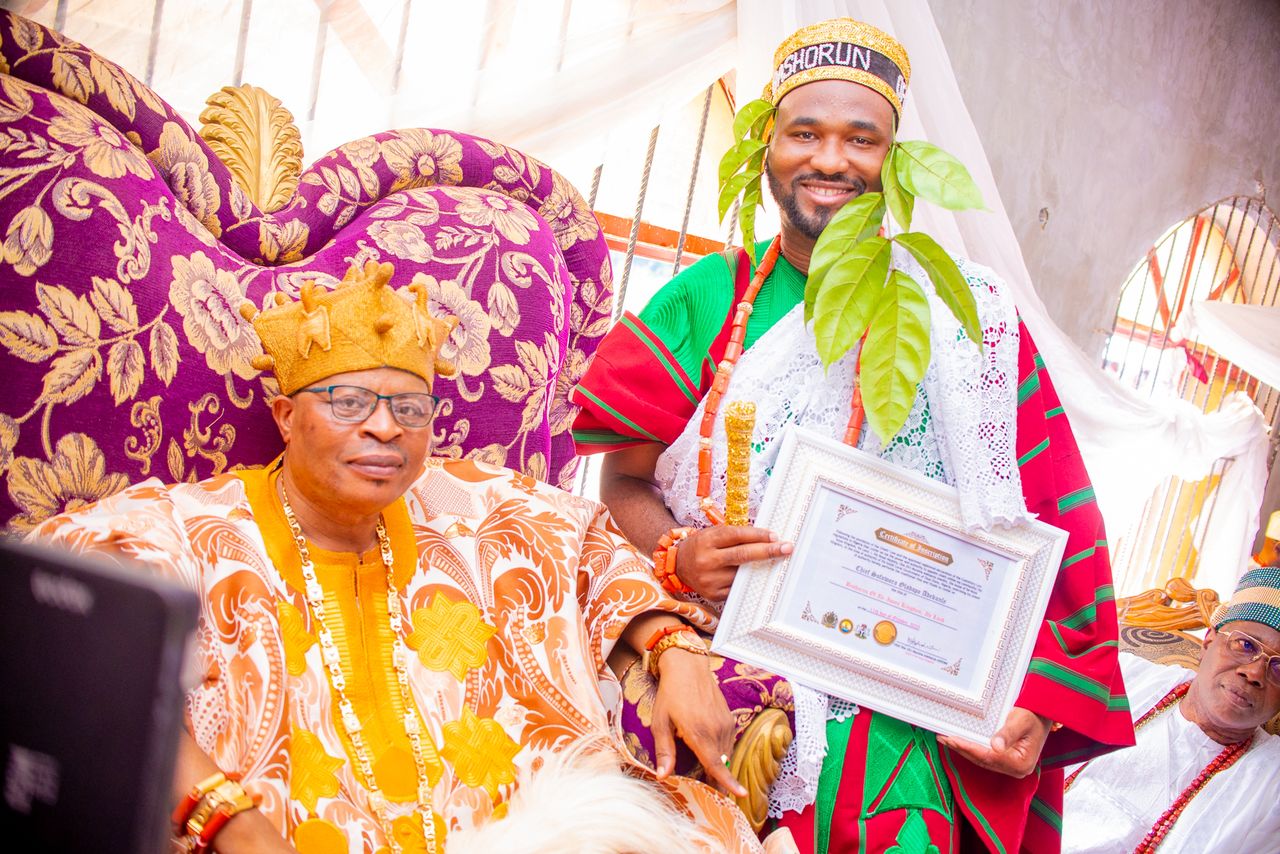
Apolline Traore is the first ever female winner of the prestigious and coveted African Movie Academy Award (AMMA) for ‘Best Director’. She won the diadem on October 29 for her study of terrorism in the Sahel. Though she is a native of Burkina Faso, her film, Sira, was shot in Mauritania for security reasons. Traore holds degrees in cinematography, from Emerson College, Boston, U.S.A., and the New York Film Academy. Sira, her fifth feature, explores female resilience. It follows Desrances (2019), Borders (2017), Moi Zaphira (2013), Sous la clarté de la lune (2004) and a number of short films. In this interview with J.K. OBATALA, Traore discusses a wide range of issues — from the virtues of Nigerian film, to her dislike of writing and producing.
Let’s open with your film, which won the award for ‘Best Director’. Tell me something about it
Sira is a feature film, which I shot last year. It’s about terrorism in the Sahara Desert, in the Sahel. It depicts what the Sahel countries are going through — in Burkina Faso, Mali, Niger and even in Northern Nigeria. I wanted the protagonist to be a woman, because in this war, we often put the men, the army and the government up front. But when I was doing my research, I saw clearly, that women also played a very big part. It’s really a movie about resilience. Resilience of the people of the Sahel — and especially of women.
How do you go about researching a movie on ‘women’, in war-torn Sahel?
The impetus came from a bloody attack in Burkina Faso, which really shocked me. Some 163 people were killed, in one village. I then realised that I had to do something. My art is the only means I have of expressing myself — of telling the world what is happening in that region. The army gave me a lot of insight about how they operate and how things are going. I also went to the refugee’s camp, of the people who actually fled their villages. I spoke with a lot of women there, who shared their experience.
How many personnel did you use in making the film?
Well, one point I have to make first is that the film was supposed to be shot in Burkina Faso — in the Northern desert. But the security situation was getting bad. My government decided I shouldn’t be in that area. So, I relocated the shooting, to Mauritania.
To Mauritania?
Yes. We stayed in Mauritania for three months, shooting. I had around 60 to 75 people on the set.
How did you fund the movie?
Well, funding came from different sources. The government of Burkina Faso put some money in. I was also in co-production, with France, Senegal and Germany.
What lesson does the film bring out?
Well, like I’ve said, the first lesson is ‘resilience’. We are going through a very, very tough time. But we shouldn’t give up, you know. And we are not giving up. The second lesson is love. Trying to understand each other and accepting one another to help fight this. Because we have to understand that terrorism in the Sahel is between us, you know. So, if we find a ground to actually talk and search for a solution, I think it’s going to be better.
Who do you think is behind terrorism, in the Sahel?
Well, I’m not a politician, so, I really cannot tell you. But I think the question that needs to be asked, is ‘Where do they get money?’ And ‘Where do they get weapons?’
Because, you know, if you look at them, most of the time they are very, very young—and they have very, very powerful weapons.
They’re found in places where there is nearly no water or food. The region is very difficult to live in. How do they get the money? How do they get their trucks and motorcycles?
Is this your first time, coming to the African Movie Academy Awards (AMAA)?
No. My first time, was the inaugural AMAA edition, with the late Peace Anyiam Osigwe. That was 19 years ago! That was when I actually did my first feature.
What was the name of your entry?
It was called Under The Moonlight.
How would you compare AMAA, at that time, to now?
Of course, AMAA was totally different! The first time I was here, it wasn’t even in Lagos! We went to a place that was some three hours drive away…
Bayelsa State?
Bayelsa State — exactly! So, it was there that we did the first AMAA. The ceremony has grown. It’s more organised. I’m very proud that Peace has left this legacy. It’s incredible, what she has been able to do, over the years.
You think winning AMAA is going to be a big promotional boost for your film?
It’s always a ‘boost’, when you win a major award. I’m particularly proud of getting the ‘Best Director’. You know, I was nominated with only men in my category! That’s one thing. Then, I learned that I’m the first woman, ever, to win the award! A female getting the award is very, very rewarding to me. And I am proud. I hope that my winning will tell young girls that it can happen — and that you have to fight for what you believe, what you dream and what you like and you can make it.
Will your next project be about women, also?
Of course! I’m a woman! You know, but there’s always men in my film. So, it’s not only about women. But most of the time it’s true, that my protagonist is a woman. And probably will be, next time.
Are you married?
No. I’m with someone. But not married. And I have a son, who is 11.
Do you plan to get married?
It depends. My business is very difficult. I’m rarely at home. You have to find someone who can live with this. During the Sira promotion, for example, I think that, over the last year, I spent one week at home! You know, that’s something not every man can accept!
Assess the state of the cinematic arts in Africa?
Well, I think we’re growing — compared with many years ago. First, there was not a lot of African film, then. You know, we had those criticisms that ‘African film could not make it’, ‘African films are not good enough, etc’. and they, ‘have no viewers’.
Today, we’ve shown that there’s great, great African film, great directors, great stories. And we have to understand too, that African cinema is the youngest, in the world! Of course, it’s going to take us time to mature, fully. But I’m really proud of where we are today.
Quantitatively speaking, Nigeria has been at the forefront of African cinema. But there is a trend now towards ‘Big budget’ film. Should African cinema stick with film that we can finance, internally? Or should we venture into areas that will require external support?
I don’t think you should mix those two… There are two types of African cinema. There’s the commercial side, which focuses on money making. And, of course, there’s the artistic, award-oriented filmmaking. They are two different things.
If you choose, as a filmmaker, to do a commercial film, whose purpose is primarily to make money and fill the box office, this is your choice. Then you should do it, because we need it.
But there are also other filmmakers that want to be more independent, and do artistic film to compete at awards and festivals. So, it’s not about one way or the other. I think a director is an artist. And he chooses where he goes.
I haven’t seen Sira. So, what is your main focus?
I’m more on the artistic side, you know. But sometime I tend to put a bit of dramatic, Hollywood suspense. I’m a drama director. I don’t know how to do comedy. I don’t know how to make people laugh! But I’m very much into social, economic and political issues.
What inspired you to get into film?
I don’t think anything really ‘inspired’ me. I’ve wanted to make film, since I was very young. When I was 10 or 11, I started telling stories. Of course, I didn’t really know what ‘filmmaking’ was, at that age. But when I grew up, and was getting ready to go to the university, I already knew what I wanted to do! I always wanted to be a filmmaker.
What is filmmaking like in Burkina Faso?
You know, Burkina Faso has been making film for many, many years. We have one of the greatest and biggest film festivals in Africa—Fespaco. We have great filmmakers that came out of there, people like Idrissa Ouedraogo and Gaston Kaboré, among others.
Years ago, we were one of the leading film producers in Africa. Unfortunately, I think cinema went a little bit down, when digital came. It made people think making a film was easy. You know, just pick up a camera and start shooting! As a result, the quantity got bigger, while the quality started to drop. But now, young people have begun to understand that even if you’re going to work with digital, there are certain fundamentals you must master. So, Burkina Faso film is getting better.
What advice do you have for young people — male or female — who’re trying to get into the film industry?
Never give up! There’s going to be a lot of ‘no’. People are always going to discourage you. They’ll tell you, ‘it’s not a good profession’, that ‘you’re not good enough’ or ‘it’s not real work’, you know.
But if you really believe in what you want to do, if you’re really passionate —because filmmaking is not something that you play with, only the passion and hard work will help you to go up and up’
What has been your biggest challenge, as a filmmaker?
My biggest challenge is money! It’s getting the money together. I’m a writer, director and producer. But I don’t like to write. And I surely hate to produce! I have not been taught how to do it. But I’ve been doing it for 20 years! And I don’t like it.
I’ve been trained, as a director. That’s what I know. That’s what I love to do. I like to tell stories!
What I’m hoping for my next project is for me not to get involved in the production part — of getting money. I will concentrate on the artistic part. This is my goal!
Where do you think African cinema should go, from here?
Well, as I’ve said, we shouldn’t even say ‘African cinema!’ I would prefer ‘African cinemas!’ There are so many countries — 54 countries! Differences in culture you know, different ways, sometimes, of seeing certain things. The biggest need of African cinemas, across the continent, is for African governments to get more involved.
Do you mean financially?
Traore…. Yes. But not just financially. They need to push artistes, as far as they can. We, as filmmakers, often feel alone. We fight to get the money. We fight to do the film. We fight to promote it.
And when the film is a success, everybody is clapping. Everybody is saying, yeah! It’s a Burkina film. It’s a Ghanaian film. It’s a Nigerian film! But most of the time, the government has not participated.
But for us to go bigger, and higher, we need a push from government. I think that some countries have now understood that — and have been helping artistes a lot. I hope every government in Africa will really, really get involved, and push the cinema up.
There are quite a number of millionaires and billionaires outside Africa —especially among African Americans. Could you not tap into that money?
It’s difficult to tap into money. You know, there’s a saying, that millionaires and billionaires are very stingy people!… You know, when they’re very rich, it’s hard to take money from them!
Also, you have to understand something about our business, when it ones to finances. When you want to invest in something, you have to see how it’s going to bring money back. This is one of the industries, in which you cannot make guarantees.
So, yes, of course there are lots of people with money. But how do you get them in, because they’re not just going to throw their money away. They have to be able to see, that the money they’re investing is coming back.
What are your impressions, of Nigerian cinema?
It’s a great popular cinema. They are making fast, low budget films that bring in money. And they have also been able to build up the star system—which a lot of African people love.
So, this is great. But at the same time, you do find some quality films that actually go to festival. I was happy to see, for example, Mami Wata win the Campell Precious Arebamen prize for Best Achievement in Make-Up. I think that’s great. Nigeria was able to do the star system, with commercial films and also have artistic, qualitative, festival cinema. And that is what we need in African film.
But it’s very difficult, for small countries to do this. You know, Nigeria has more than 200 million people — while most other African states have 20 million! Nigeria needs to continue making a lot of films, because it generates money, it generates work.
Do you think African filmmakers should place greater emphasis on the manufacture of cameras and other film-related paraphernalia?
Yes. Of course. Because one of the biggest financial outlays, when you want to make a film, is for the equipment.
A lot of things are imported from Europe or America. Most of the equipment I needed for Sira, for example, came from France, because we did not have it in Burkina Faso. So, yes, it is important to manufacture.
What about the issue of French financial involvement. I’ve notice that the well-being of the film industry, in French speaking countries, is tied to government support.
First of all, they’re colonisers! They took a lot of our resources. Why can’t we get that money back! We are tied to France. We speak their language, you know. And then, there are some French institutions which, of course, finance film.
But then, what you have to understand is that when you make a film, you’re on your own. If you want to go and take money from France, nobody is telling you to do it! You made the choice.
For example, I have a French co-producer. Our work is separate, in the sense that I get money to do production in Africa and he gets money to pay for editing in France — because in my country, we don’t have the equipment to do editing, for that type of film.
A lot of filmmakers will go to French institutions to get money; and then the donors will tell them, ‘Oh, for you to get the money, you need to change this or that, etc., etc’.





